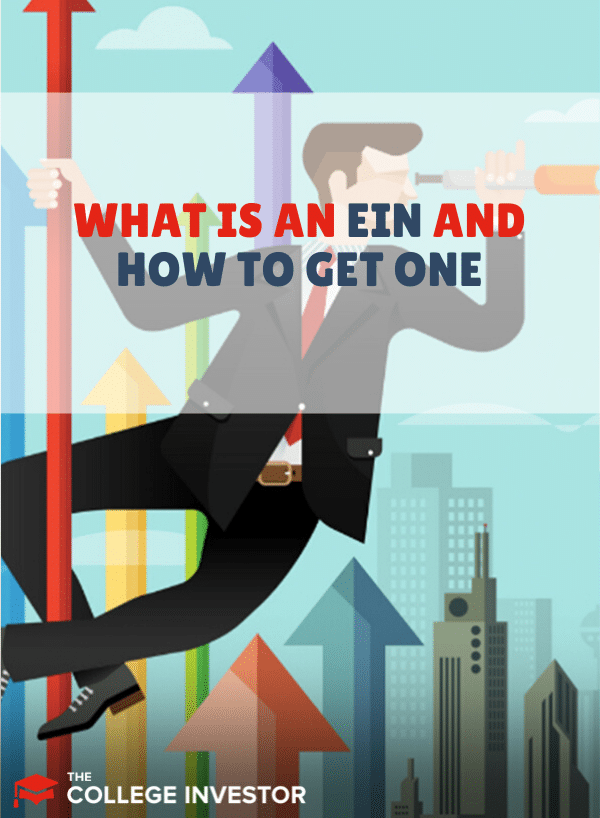
An EIN is a unique identifying number issued by the IRS for a business. It is used to open business checking accounts and file taxes, among other things.
EINs are easy to get and most businesses will find that they eventually need one.
In this article, we’ll cover what an EIN is in detail and how to get one.
What Is an Employer Identification Number?
An Employer Identification Number (EIN) — or as it is sometimes called by its longer name, a federal Employer Identification Number (FEIN) — is an identifying number used by a business. It is a nine-digit number. Just as a Taxpayer Identification Number (TIN) is for individuals (i.e., your Social Security number), the EIN is only for businesses.
Any new business must obtain an EIN in order to open a checking account, set up retirement and medical benefits for employees, and file a tax return. The IRS uses the EIN to identify a business’s financial information and tax returns.
EINs are permanent numbers and unique to each business.
EINs are public information and are used on Form W-9s as well.
Who Needs an EIN?
From the IRS website, you will need an EIN if you answer yes to any of the following:
- “Do you have employees?”
- “Do you operate your business as a corporation or a partnership?”
- “Do you file any of these tax returns: Employment, Excise, or Alcohol, Tobacco and Firearms?”
- “Do you withhold taxes on income, other than wages, paid to a non-resident alien?”
- “Do you have a Keogh plan?”
“Are you involved with any of the following types of organizations?
- Trusts, except certain grantor-owned revocable trusts, IRAs, Exempt Organization Business Income Tax Returns
- Estates
- Real estate mortgage investment conduits
- Non-profit organizations
- Farmers' cooperatives
- Plan administrators”
If you are creating a small, single-person business, it may not be necessary to get an EIN. The business can operate as a sole proprietorship or a single-member LLC. You can operate without an EIN under these two structures, mainly because there are no employees. But even in these scenarios, there are reasons to consider getting an EIN.
Many banks require an EIN to open a business checking account. If you are serious about your business, a business checking account is a must to get your financials separate (individual vs. business).
As your business grows, it’s inevitable that you will work with other businesses, and in those cases, a TIN or EIN will be required (such as for Form W-9s and Form 1099s). Instead of sending your Social Security number around, you can use your EIN and business name. As you work with contractors, you’ll need to issue Form 1099s for them, which will require either your TIN or EIN. Using your EIN again helps keep your Social Security number private.
Finally, if your business files taxes, an EIN will be needed.
How Do I Get One?
Getting an EIN is simple. There are several ways to obtain one from the IRS:
- IRS website
- Mail or fax: Complete Form SS-4. Then check here for mailing and fax information.
Online applicants can expect to receive their EIN in about two weeks. Mail or fax applicants can expect to receive theirs in four to five weeks.
One question on the EIN application asks for a “responsible party.” This is a person who is responsible for the company. If you are the only person in the company, you are the responsible party. If more than one person is responsible for the company, select one of those people.
After Receiving Your EIN
Once you receive your EIN, you can apply for a business license and open a business checking account.
Be sure to write down your EIN and keep it in a safe place. If you happen to lose your EIN, you can call the IRS at (800) 829-4933 and select the EIN option. You’ll be connected with an IRS employee who can help you.
When Is a Different EIN Required?
There are some cases that require a different or new EIN. Simply changing the name of your business doesn’t require a new EIN. If the business type or legal structure changes, a new EIN may be required. Rather than go through the long list of scenarios that require a new EIN, you can review them here.
There really isn’t any reason to wait on getting an EIN. It’s more likely that one day, you will need one immediately only to find out that you have to wait at least two weeks under the best-case scenario. Instead of putting yourself in a bind, why not just apply for one now and be ready when the time comes?

Robert Farrington is America’s Millennial Money Expert® and America’s Student Loan Debt Expert™, and the founder of The College Investor, a personal finance site dedicated to helping millennials escape student loan debt to start investing and building wealth for the future. You can learn more about him on the About Page or on his personal site RobertFarrington.com.
He regularly writes about investing, student loan debt, and general personal finance topics geared toward anyone wanting to earn more, get out of debt, and start building wealth for the future.
He has been quoted in major publications, including the New York Times, Wall Street Journal, Washington Post, ABC, NBC, Today, and more. He is also a regular contributor to Forbes.
Editor: Clint Proctor Reviewed by: Chris Muller
